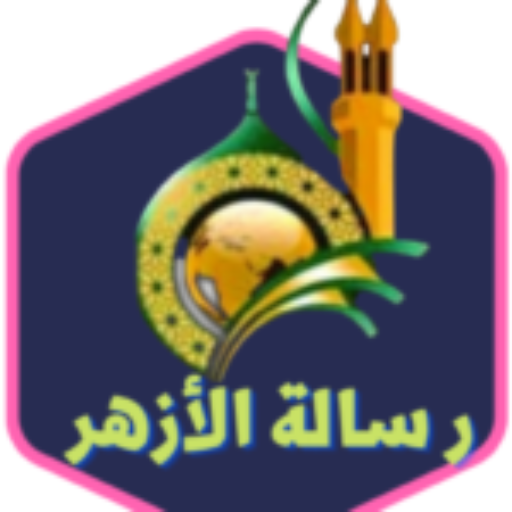Arabic Language Classes
Arabic Language Classes, Arabic lessons for beginners, online Arabic classes
Who Should Enroll in Arabic Classes?
- Complete novices to the Arabic language.
- Students and professionals
- Heritage speakers seeking literacy

There are many ways and motivations to learn the Arabic language, the most effective of which is currently learning the language remotely through online educational institutions, including Al-Azhar Academy.
Complete novices to the Arabic language.
If you’re a beginner with no prior knowledge of the Arabic language, enrolling in Arabic classes can be a life-changing
decision. Arabic is a rich and beautiful language with many dialects, including Modern Standard Arabic (MSA), Egyptian,
and others. Many language courses are specifically designed for beginners, offering a solid foundation
in alphabet, vocabulary, and basic grammar. Online lessons are widely available, giving you the opportunity to learn at
your own pace. These programs often include audio resources to help with listening and speaking skills, and you can start
with basicconversation practices. A beginner course will typically focus on understanding the alphabet, pronunciation, and
simple sentence construction. Whether you choose a summer program or an intensive course, you’ll build the confidence
to speak and start reading and writing in Arabic. The key to success is consistency and practicing regularly with tutors who
can guide you through the learning process.
Students and Professionals
Arabic is an essential language for students and professionals looking to enhance their career prospects, especially
in foreign affairs, business, or culture. Many professionals opt for Arabic language programs to
develop fluency in reading, writing, and speaking. Institutes and online courses offer flexible schedules,
with live lessons that focus on improving your listening and speaking skills. Whether you need Modern Standard Arabic
(MSA) for professional communication or are interested in regional dialects, such as Egyptian Arabic, you
can explore various methods of learning. For students, Arabic can be a valuable asset for academic purposes, including
reading the Quran or studying the classical form of the language. A comprehensive program that
balances grammar, vocabulary, and culture can boost your understanding and provide a competitive advantage in a
global job market.
Heritage Speakers Seeking Literacy
Heritage speakers of Arabic may already have a spoken understanding of the language but might struggle
with reading and writing. For these individuals, enrolling in an Arabic language class designed for heritage learners can
offer a significant advantage. These programs focus on strengthening literacy skills, from mastering the alphabet to
understanding advancedgrammar concepts. By learning Modern Standard Arabic (MSA), heritage speakers can enhance
their understanding of vocabulary and fluency in both written and spoken forms. Many courses emphasize the connection
between cultural history and language, helping learners gain a deeper appreciation of the language’s role in society.
The quality of these online or in-person programs is reflected in the rating and feedback from previous students, ensuring
that they receive engaging, interactive lessons that meet their specific needs. Whether you want to focus on writing skills
or improve your conversation level, these programs provide an excellent way to connect with your heritage and grow in
your understanding of the Arabic language.
Key Features of Quality Arabic Language Programs
- Qualified Native Instructors
- Structured Curriculum for All Levels
- Use of Multimedia and Interactive Resources
- Practice in Speaking, Reading, Writing, and Listening

Qualified Native Instructors
One of the most important aspects of a quality Arabic language program is the faculty. Qualified native instructors bring
an authentic understanding of the language, offering insights into both standard and colloquial dialects. These teachers
provide an immersive learning experience, ensuring students not only understand Arabic but also develop the ability to
speak and write with proficiency. Many programs offer introductory lessons starting from scratch, focusing
on basic concepts like the alphabet (Abjadiyah) and grammar. Experienced instructors tailor lessons to match the
student’s learning style, whether online or in person, using the latest teaching methods. As part of interactive lessons,
they incorporate videos, activities, and regular assessments to track students’ progress and gain feedback to master the
language. Whether you’re studying MSA or focusing on a specific dialect, a native instructor helps make the learning
process convenient and rewarding.
Comprehensive Curriculum Designed for Every Learner Stage
A well-structured curriculum is essential for mastering Arabic, regardless of whether you’re starting from scratch or
working to improve your proficiency. Quality programs offer a curriculum that spans from elementary to advanced levels,
ensuring that each student can progress at their own pace. These programs include a balance of theory and practice, with
lessons covering grammar, vocabulary, and reading comprehension. Structured lessons are designed
to immerse students in Arabic, gradually introducing them to new skills while building on the basics. Whether you are
studying Modern Standard Arabic (MSA) or a regional dialect, the curriculum will ensure you acquire skills across all
aspects of the language: speaking, listening, reading, and writing. Furthermore, programs often incorporate cultural lessons,
helping students understand the philosophy behind the language. This comprehensive structure supports learners in
tracking their progress and gaining confidence at every stage of their studies.
Use of Multimedia and Interactive Resources
A key feature of top Arabic language programs is the use of multimedia and interactive resources. These tools help
students engage more deeply with the language and improve their comprehension and listening skills. For instance,
programs often offer video lessons and audio resources that expose students to native speakers. Interactive activities,
such as quizzes and virtual games, are also commonly incorporated to reinforce grammar and vocabulary. These
resources allow students to practice Arabic outside of the classroom, making the language learning process more dynamic
and fun. Platforms like Noor and Al Jazeera offer interactive content to support learning, while Middlebury and other
institutions integrate immersive techniques that blend traditional learning with modern trends. Whether you’re
studying MSA, Egyptian, or another dialect, multimedia resources ensure a well-rounded educational experience that keeps
students motivated and engaged.
Developing Skills in Speaking, Reading, Writing, and Listening
A comprehensive Arabic program places equal emphasis on all four language skills: speaking, reading, writing,
and listening. It’s important to immerse yourself in Arabic by practicing regularly to gain confidence and
fluency. Programs often incorporate interactive activities where students practice speaking with native speakers, improving
their ability to hold conversations in Arabic. Reading materials range from introductory texts to advanced literary works,
enhancing both vocabulary and comprehension. Writing assignments may include everything from simple sentences to
complex essays, reinforcing grammar and syntax. Listening exercises, such as watching videos or listening to podcasts,
help students familiarize themselves with different accents and dialects. Through consistent practice in all these areas,
students can develop a proficient understanding of Arabic, whether they’re preparing for professional use, academic studies,
or personal enrichment.
